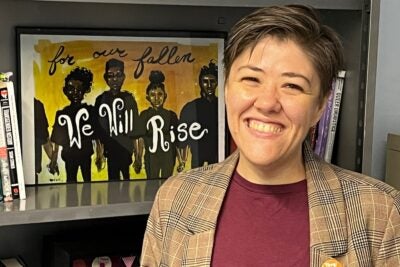The lived experiences of both disabled and transgender people have recently attracted increased scholarly and popular attention, as the importance of equity and inclusion is more broadly acknowledged. While scholars of both disabled history and transgender history argue the need for intersectional accounts of social movements that include the perspectives of people who experience multiple oppressions, the lives and struggles of people who are both transgender and disabled remain largely undiscussed. Ellison’s project, “Disabled and Transgender: The History of An American Movement,” remedies this gap through an intersectional analysis of the social movements of disabled transgender people during the 20th century. Drawing on original oral histories with disabled transgender people and archival material, Ellison documents the experiences and self-understandings of a unique community who produced a vibrant social movement that continues today. The research shows that disabled transgender people, especially disabled transgender women of color, provided cultural, intellectual, and political leadership in both the United States disability rights movements and the lesbian, gay, bisexual, and transgender freedom struggle. Disabled transgender people developed a specific political agenda that addressed the intersection of their identities. The lived experiences and politics of disabled transgender people provide invaluable insight into how social systems, including ableism, cis-heterosexism, racism, and classism, reinforce each other, as well as compelling examples of how oppression can be successfully challenged.

